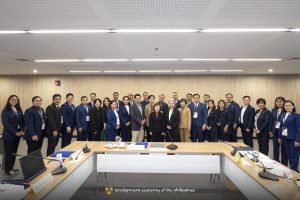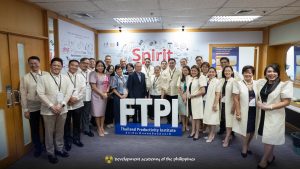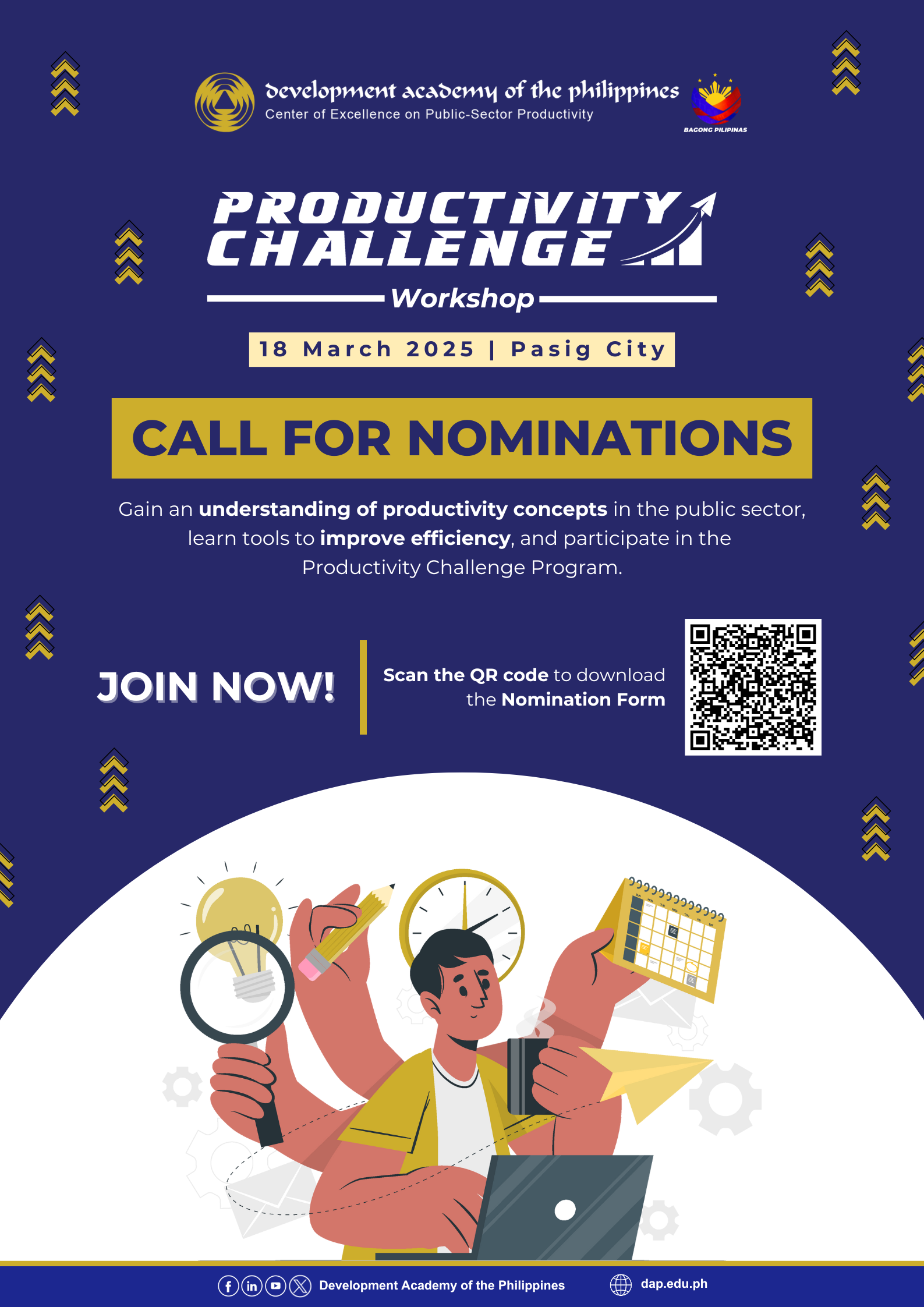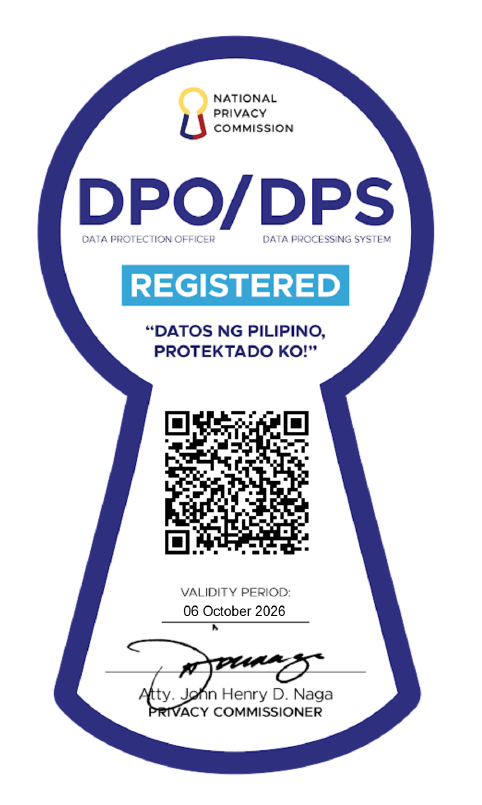
A fresh wave of insights unfolded as the Senior Executives Class (SEC) Batch 14 under the Public Management Development Program (PMDP) of the Development Academy of the Philippines (DAP) successfully concluded its Foreign Study Mission (FSM) on International Governance and Policy Innovations held in Bangkok, Thailand, from 29 September to 3 October 2025.
This year’s mission was strengthened through a bilateral cooperation between the DAP and the Foundation for Thailand Productivity Institute (FTPI)—a long-standing partnership as National Productivity Organizations promoting productivity, innovation, and sustainable development in the ASEAN region. At the heart of FTPI’s presentation was its strategic roadmap, “The Path to Sustainable Success”, the strategy for productivity, which outlined areas for potential future collaboration with DAP. The FTPI discussed opportunities for cooperation, such as in sustainable development and green productivity, particularly in promoting circular economy models, sustainable manufacturing, and joint sustainability assessment frameworks. They also highlighted possibilities in human capital development through international exchange programs for productivity specialists, joint certification programs, and multilateral training curricula for future skills. In addition, the institutions discussed research and development collaboration for establishing joint research funding mechanisms and shared databases and knowledge repositories, as well as digital platform development to create productivity benchmarking tools, e-learning systems, and data-sharing protocols that can strengthen the region’s innovation ecosystem. The experience delivered firsthand knowledge of how Thailand is implementing its ambitious ‘Thailand 4.0’ agenda, positioning itself as a hub for technology and productivity in the ASEAN region.

The SEC 14 delegation—composed of 25 senior executives representing 17 Philippine government agencies—engaged with pivotal Thai institutions that are shaping the country’s national strategy. Among these are the Office of the Public Sector Development Commission (OPDC), Ministry of Digital Economy and Society (MDES), Digital Economy Promotion Agency (DEPA), Bank of Thailand (BOT), and National Science and Technology Development Agency (NSTDA).
At the OPDC, they learned about governance and public service modernization reforms aimed at improving efficiency and trust. They first discussed the bureaucracy to a digital-ready government wherein the Public Sector Development Strategy was identified as the enabler, aligning reforms with the National Strategy and setting the stage for the country’s digital transition. They also shared that through the country’s Digital Government Vision and Strategy, the shift from government-centered to citizen-centered services through the BizPortal and Citizen Portal was realized.
The MDES and the DEPA offered deep insights into how Thailand is steering digital transformation policy and industry growth under the Thailand 4.0 vision. For MDES, they outlined the Ministry’s mandate to drive digital infrastructure, literacy, cybersecurity, and e-government initiatives, highlighting flagship projects such as the National Digital ID and Smart City development. On the other hand, the DEPA has a crucial role in promoting Thailand’s digital ecosystem to further assist Thai communities and industries.
Further, the BOT provided perspectives on monetary policy and financial stability, resilience, and inclusion amid rapid technological change through their flagship projects by developing financial innovations through virtual banking and Promptpay, a SuperApp where the Thai people can access anywhere and anytime.
The NSTDA presented as well their leading research and advanced technology applications. During the tour, the ThaiSC’s Supercomputing Infrastructure was explained and delegates learned about LANTA, Thailand’s most powerful supercomputer. On top of this, they introduced the envisioned Thailand Science Park and ongoing initiatives under the Thailand Industry 4.0 platform.
The delegation also visited the Philippine Embassy in Bangkok, where discussions focused on ongoing bilateral programs and the Embassy’s initiatives that support the welfare of Filipino workers and migrants and the broader Philippine-Thailand collaboration.
Through these exchanges, the SEC 14 Foreign Study Mission offered a holistic learning experience—one that linked global perspectives with local relevance. The delegates returned to the Philippines inspired by Thailand’s journey toward sustainable productivity and digital governance, equipped with new ideas that can be adapted to the Philippine public sector.
This international mission affirms DAP’s commitment to cultivating globally aware and innovation-driven leaders who can champion transformation and productivity in government. Guided by its mandate to build the nation’s pool of competent public managers, the Academy continues to pursue partnerships that foster learning, collaboration, and sustainable progress across ASEAN and beyond.




